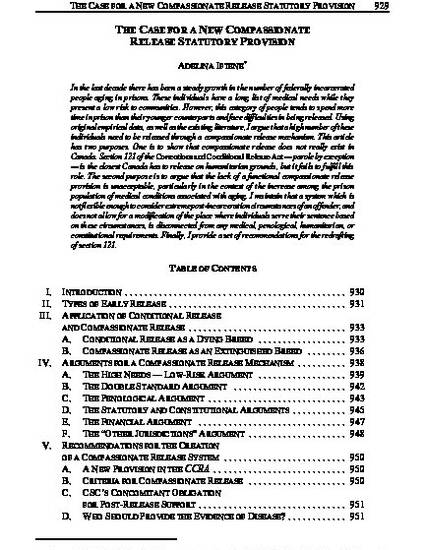
- Compassionate Release,
- Older Prisoners,
- CCRA
In the last decade there has been a steady growth in the number of federally incarcerated people aging in prisons. These individuals have a long list of medical needs while they present low risk to communities. However, this category of people tends to spend more time in prison than their younger counterparts and face difficulties in being released. Using original empirical data, as well as the existing literature, I argue that a high number of these individuals need to be released through a compassionate release mechanism. This article has two purposes. One is to show that compassionate release does not really exist in Canada. S. 121 of the Corrections and Conditional Release Act – parole-by-exception – is the closest Canada has to release on humanitarian grounds, but it fails to fulfill this role. The second purpose is to argue that the lack of a functional compassionate release provision is unacceptable, particularly in the context of the increase among the prison population of medical conditions associated with aging. I maintain that a system which is not flexible enough to consider extreme post-incarceration circumstances of an offender, and does not allow for a modification of the place where individuals serve their sentence based on these circumstances, is disconnected from any medical, penological, humanitarian, and constitutional requirements. Finally, I provide a set of recommendations for the re-drafting of s. 121.
